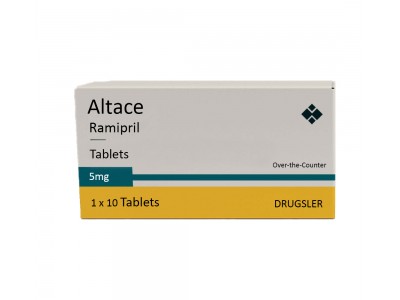Can Altace Help Manage Heart Failure?
Heart failure is a serious condition that affects millions of people worldwide. One treatment option for heart failure is the use of ACE inhibitors, such as Altace for heart failure treatment. Altace is commonly prescribed to help manage heart failure and reduce the strain on the heart. In this article, we will explore how using Altace to manage heart failure can benefit patients, its effectiveness, potential side effects, and alternatives.
Understanding Heart Failure
Heart failure occurs when the heart is unable to pump blood efficiently throughout the body, leading to symptoms such as fatigue, shortness of breath, and swelling. The condition can be caused by various factors, including coronary artery disease, high blood pressure, and previous heart attacks. Fortunately, there are several medication options available to help manage heart failure, including ACE inhibitors like Altace.
What is Altace?
Altace, also known by its generic name ramipril, is an ACE inhibitor commonly used to treat high blood pressure and heart failure. ACE inhibitors work by blocking the action of the angiotensin-converting enzyme (ACE), which causes blood vessels to constrict. By inhibiting this enzyme, Altace helps relax blood vessels, improving blood flow and reducing the workload on the heart.
How Effective is Altace for Heart Failure?
Altace and heart failure effectiveness have been well-studied in clinical trials. Research shows that it can significantly improve symptoms and quality of life for people with heart failure, particularly those with reduced ejection fraction (HFrEF). Studies indicate that Altace helps reduce hospitalizations and the need for other interventions, making it an important part of heart failure management.
Altace Dosage for Heart Failure
The Altace dosage for heart failure varies depending on individual patient needs and response to treatment. Typically, doctors will start patients on a low dose and gradually increase it to ensure the best results while minimizing side effects. The standard dose for heart failure management is usually between 1.25 mg and 10 mg per day. However, it’s important to follow your doctor’s instructions and attend regular check-ups to adjust the dosage if necessary.
Potential Side Effects of Altace
Is Altace Safe for Heart Failure Patients?
Many patients with heart failure can safely use Altace, but Is Altace safe for heart failure patients? ultimately depends on the individual’s medical history. For example, people with a history of kidney disease or low blood pressure may need to avoid this medication or use it under close supervision. Your doctor will assess your condition and determine if Altace is a suitable treatment option for you.
Alternatives to Altace
While Altace is an effective medication for managing heart failure, it is not the only option. There are other Altace alternatives for heart failure that may be appropriate for some patients. Other ACE inhibitors, such as enalapril or lisinopril, or angiotensin receptor blockers (ARBs) like losartan, may be used as alternatives depending on the patient's specific needs and response to treatment.
Conclusion
Managing heart failure is a long-term process that involves a combination of medications and lifestyle changes. Managing heart failure with Altace has proven to be an effective strategy for many patients. By understanding the benefits, potential side effects, and dosage requirements, patients and their healthcare providers can make informed decisions about incorporating Altace into their heart failure treatment plans.

